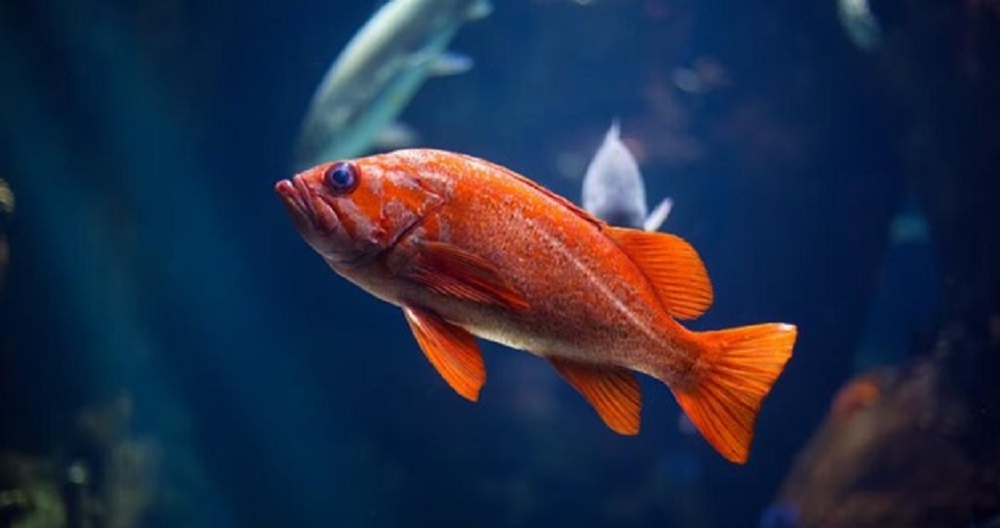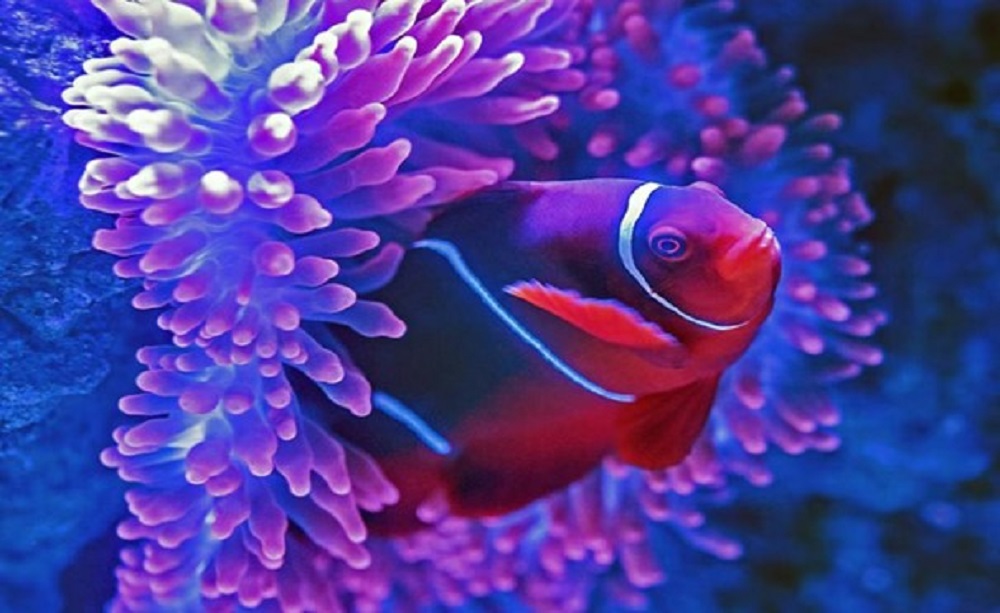How Do Fish Poop? Facts That Will Amaze You!

We use the scientific term ‘feces’ for poop. It is a byproduct of microbial activity and digestion in living organisms. It acts as a marker of the food your pets are taking. It also has an essential role in the carbon cycling process. A diet that is high in protein-based and meaty foods will result in a different type of poop than a diet that is high in plant-based flake foods. In “How Do Fish Poop? Facts That Will Amaze You!”, You’ll get a brief detail:
It is a fascinating point to ponder upon. Many people wonder how fish pee and poop? This question is one of the most frequently asked ones because apparently, fish has no visible opening except their mouth. Then, how do they expel their wastes? If you are also curious to know, you are at the right place as this article will answer this question and many regarding fish pee and poop.
Do Fish Also Pee and Poop?
Like normal human beings, fish also pee and poop as it is an essential part of their physiological cycle. The generated wastes are excreted out of their bodies in the form of feces and urine.
Whether the fish is living in a water tank or a pond, almost all the fish have similar body functions.
Fish also has a pair of kidneys to process waste products in their bodies, just like a typical mammal. However, the shape and size of this pair of kidneys vary from one species to another. Despite a little bit of difference in anatomy, their functions are standard. They help process waste products and help live a healthy and everyday life.
However, a significant difference between fish and other living organisms is the frequency of their excretion of waste products.
Fish pee only once a day, Unlike human beings who feel the need to pee every two or three hours.
How Do Fish Process Pee and Poop?
The main functional organ responsible for peeing and poop in a fish is the pair of kidneys it possesses. However, the physiology of these two kidneys is a lot different in a fish than you’d see in a human being.
The waste products first pass through the kidneys and then get filtered out of their body.
Pooping in fish
How do fish process poop? Let us walk through the whole process in detail.
Like any other living organism does consume food in fish is also processed by the digestive system they have. The food processed in their digestive system goes through the intestines and then gets excreted out of their body through the anus.
Unlike the frequency of peeing, pooping happens once every 48 hours. The whole process is quite extensive. Ideally, like you take notice of excess peeing, you also need to be mindful of the pooping frequency. If you notice large round pellets around the substrate in your aquarium, they are more likely to be poop. Just make sure that you either set a filter to clean up the deposited waste or regularly change the water to prevent any infections.
The poop color also varies differently. In some cases, you will notice the fish poop color to be the same as that of the food they recently ingested. If the fish poop color is highly reddish or brownish, they have likely invested a lot of bloodworms. This understanding helps you get to know about any need for the dietary changes in the fish.
If your pet fish intakes green plants and algae in large amounts, It can quickly expect their poop color to be green. There’s nothing to worry about if you notice a consistent change in the color or shades of their poop. However, a fish poop that is white-colored is a red flag. It is a sign that your fish is, somehow, malnourished. So, feed them a well-balanced and nutritional diet immediately after you notice a character like this.
How often do fish poop?
Fish poop as often as it wants or whenever it feels urgent to eliminate waste fluid and feces. If you are giving food in a regular amount in a proper routine, it will poop with the same frequency on a regular basis.
If you constantly feed your fish, it is expected to poop at least once in 48 hours. If a fish is not fed similar amounts of food regularly, poop will often delay, and We will excrete feces at irregular intervals. If a fish is starving, it won’t poop for up to 4 days.
Most the fish pee more often than poop. They pee almost daily. It depends on how well their kidneys are functioning. They will pee less while being sick. There is no need to track their bowel movements when they are not ill.
Are Fish Feces Good for Plant’s Health?
Fish poop is considered suitable for the health of certain plants, such as coral reefs that require nutrients, warm water, and sunlight to survive. Nutrients in water alone are not enough for the plants like coral reefs to stay, but they get enough required nutrients from fish pee and poop.
When a fish excretes poop or pee in free water, the coral reef waves its tentacles around itself so that its little arms can grab fish pee and poop and thus, absorb the required amount of nutrients. Many other aquatic plants get their nutrients in the same way.
Corals and other aquatic plants absorb essential nutrients such as phosphorus and nitrogen from the fish pee. These nutrients absorbed from fish pee help corals in their growth.
Algae, another example of the aquatic plants which get their nutrients from fish wastes, converts the nutrients absorbed from fish pee and poop into sugar.
Tips for Removing Poop From Fish Tank
Although fish poop is rich in nutrients, it equally has dangerous amounts of parasites and chemicals in it. Letting them stay in the tank to rot is something you will not want in the long run. Since fish poop contains a substance, it will settle in the bottom of the tank, just like the pellets do.
You need to follow the given instructions to clean the fish poop in the aquarium.
1. Switch off all the electrical devices
As we already know, there is an ample number of electrical devices in the fish aquarium, including pumps, filters, and lights. These electrical devices can impose the risk of minor to major accidents. Since you will have to immerse your hand while cleaning the poop in the tank, any contact with the electronics can risk electrocution.
2. Start with algae
While cleaning the poop and the aquarium in general, always start with cleaning the algae. The excess algae growth becomes profound with the deposits of fish poop. So, you want to make sure that you get rid of algae as much as possible. Also, avoid cleaning out everything, primarily if your fish depends on algae to fulfill its nutritional requirements.
An algae scraper is the best option to clean excess algae growths. It not only cleans the sides but also scrapes off the extra dirt accumulated on them.
3. Take out some water
While cleaning the tank, make sure that the last thing you do is change the water without acclimatizing the fish. We suggest you change 40-50% of the water.
What is fish poop called?
Many people call fish poop ‘ residues’. It is a known scientific name referred for the dead particular organic substances which originated from fish.
Can a fish suffer disorders like constipation?
Have you ever wondered if a fish can suffer constipation or other digestive disorders related to overfeeding?
A sign indicating that your fish is suffering from constipation is that its poop will be stringy and it will stick to the fish’s body.
There are several ways by which you can help a constipated fish, especially if it is presenting with a bloating stomach but is unable to poop.
- Follow instructions when you are feeding pellets to your fish.
- Try your best to avoid giving flake foods to your fish as they can increase the susceptibility of the fish to suffer constipation.
Read More Posts
Assassin Snail Care Guide: Behavior, Habitat and Tank Conditions
Conclusion
Fish are a beautiful and versatile creation of nature. They have some similarities and differences with human beings. Like human beings, They possess a pair of kidneys. However, their poop routine is a bit different than ours. If we properly feed our fish, it is expected to poop at least once in 48 hours. Poop is rich in nutrients.
That’s why poop is considered suitable for the health of certain plants, such as coral reefs. As poop contains some parasites and chemicals, you need to clean your aquarium regularly to avoid any hygiene problems.
Moreover, They usually pass a long, thin, mucus-covered fecal package.
If you see an aquarium full of goldfish for long enough, you will see one of them with a poo sticking out from the area at the base of the tail, not the fin, but where the body ends and the bit the fin is attached to, the caudal peduncle.



